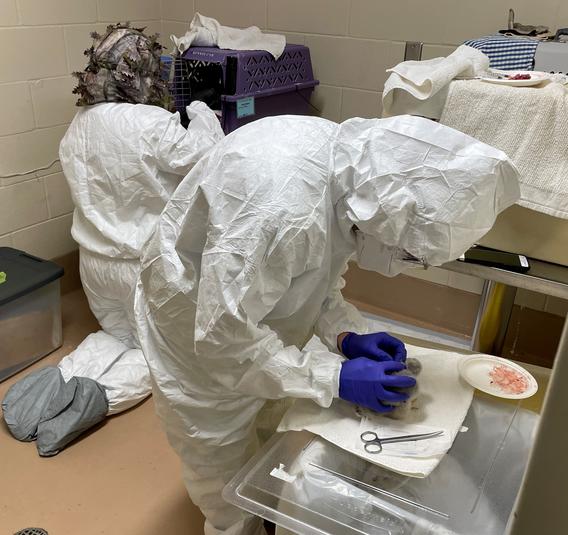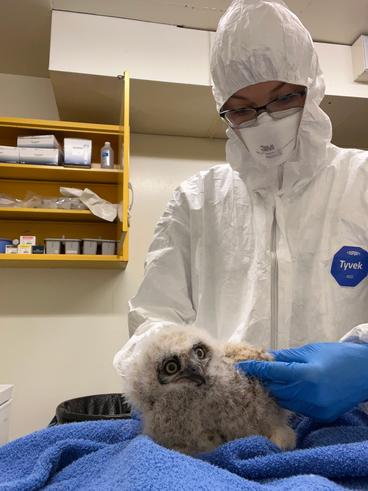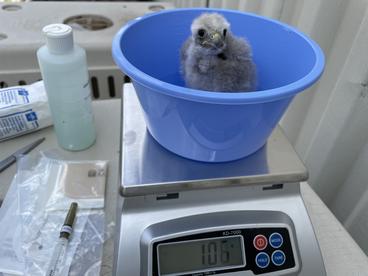
Spring is an exciting time in Minnesota. The days get longer, birds migrate back to the region, raptors attend to their nests, and eggs begin to hatch. Baby season is here.
There is never a dull moment in The Raptor Center (TRC) clinic during baby season. TRC staff and volunteers are ready to jump into action to support the next generation of raptors. Staff members are on the phone with concerned private citizens into the evening hours to ensure the young raptor they found on the ground gets the help it needs.
Veterinarians provide intensive medical care for injured juveniles to give them a second chance at life in the wild. The rehabilitation staff coordinate with finders and volunteers to return babies to their parents or a wild foster family if needed.
During 2022, baby season coincided with a severe outbreak of highly pathogenic avian influenza (HPAI) in the region. This virus causes severe disease in raptors, and, unfortunately, the majority of infected individuals do not survive.

In the midst of this severe disease outbreak, TRC staff came up with creative solutions to continue to provide care for juvenile raptors while preventing transmission of HPAI between patients or to nests.
Hospital spaces were modified to create an intake and quarantine location just for babies.
Staff rapidly assessed young raptors upon arrival and returned as many as possible to their parents the same day. The youngsters were tested for HPAI at the time of admission, and staff ensured they tested negative for the virus before sending them to foster families. TRC implemented intensive biosecurity protocols to make sure that the babies stayed healthy during their treatment. These biosecurity measures included wearing Tyvek suits, nitrile gloves, N95 respirators, and eye protection when caring for the birds, along with rigorous cleaning and disinfection protocols. This ingenuity and dedication allowed TRC to successfully care for and release several juvenile raptors despite the HPAI outbreak.

The HPAI virus has continued to circulate in wild birds throughout the world, and TRC expects to see more raptors affected by this virus during the 2023 baby season. With appropriate precautions and all the knowledge gained during the 2022 outbreak, staff members are looking forward to another fulfilling, exciting, and successful baby season.